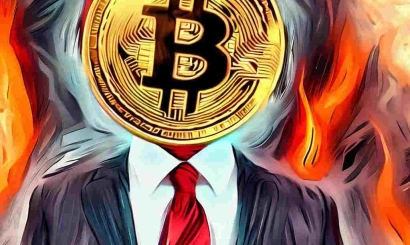Trump Announced the Creation of a Bitcoin National Reserve. How Realistic Is It?
Former MicroStrategy CEO Predicted Bitcoin's Share in U.S. Reserves at 31.4% Why Include Bitcoin in National Reserves? Who Supports This Idea and Why Is It Not Yet Implemented?
The inclusion of Bitcoin in national reserves alongside precious metals or foreign currencies is increasingly being discussed by politicians and officials worldwide.
Former U.S. President Donald Trump, speaking at the Bitcoin 2024 conference in Nashville, announced his intention to create a "strategic Bitcoin reserve." He emphasized that cryptocurrencies could become an important part of the country's economic competitiveness and promised never to sell Bitcoin seized by the U.S. government.
"If elected president, my administration's policy will be to hold all the Bitcoin the state possesses or seizes. These coins will be included in the national reserve," Trump stated.
Which Countries Have the Most Bitcoin? Where Did They Get It, and When Do They Sell It?
Republican Senator Cynthia Lummis announced plans to introduce a bill for the U.S. Treasury to purchase 1 million Bitcoins, which represents 5% of the total supply. At the current price, 1 million BTC would be worth approximately $67 billion.
Supporters of Bitcoin Reserves
Experts believe that realizing such ambitious plans for the leading cryptocurrency will require considerable work. According to the CEO of Mawson Infrastructure Group, as cited by Coindesk, potential tasks include determining a reasonable amount of BTC, methods of acquisition, duration and location of storage, reasons for potential use, and designating a responsible agency.
Lummis and Trump are not the first to propose the idea of including Bitcoin in national reserves. Michael Saylor, former CEO of the software company MicroStrategy, suggested that the U.S. Treasury acquire 4 million BTC (around $270 billion at the July 30 rate).
"Bitcoin is not the solution to all our problems. It's the solution to half of our problems," said Saylor.
ARK Invest CEO Cathie Wood is also an advocate of using Bitcoin as a reserve asset. She noted that this would only be significant if the leading cryptocurrency is not used as a monetary policy tool but simply held on the U.S. balance sheet.
Even if Bitcoin is not included in U.S. reserves, the idea itself already benefits the entire cryptocurrency ecosystem. Pedro Lapenta, Head of Research at Hashdex, stated: "While it is unclear whether the U.S. will hold Bitcoin as a strategic reserve asset and when that will happen, the idea has now entered the realm of government policy considerations worldwide. This is a monumental event that will prompt many governments and large institutions to seriously consider the benefits of holding BTC," Lapenta told Coindesk.
Bitcoin's Share of U.S. Reserves
If the U.S. were to officially recognize Bitcoin as a reserve asset, the currently confiscated BTC would constitute 1.6% of the country's total official reserves at the end of July prices ($13.6 billion out of $854 billion), according to Blockworks. The U.S. currently holds over 200,000 BTC, according to analytics company Arkham.
Considering the scenario proposed by Lummis, where the balance should hold 1 million BTC, Bitcoin's share in U.S. reserves would be 7.85% ($67 billion out of $854 billion). Michael Saylor's scenario, where the government should hold 4 million BTC, would give the leading cryptocurrency a 31.4% share of the U.S. reserves ($268 billion out of $854 billion).







